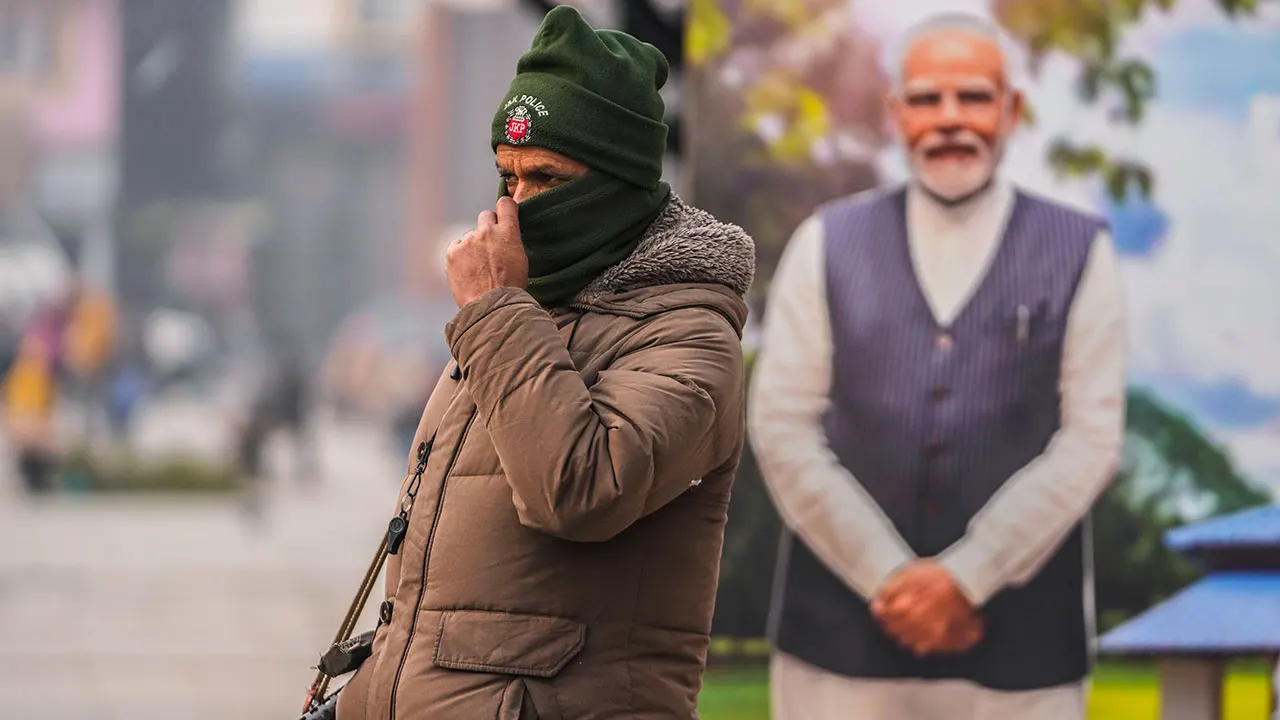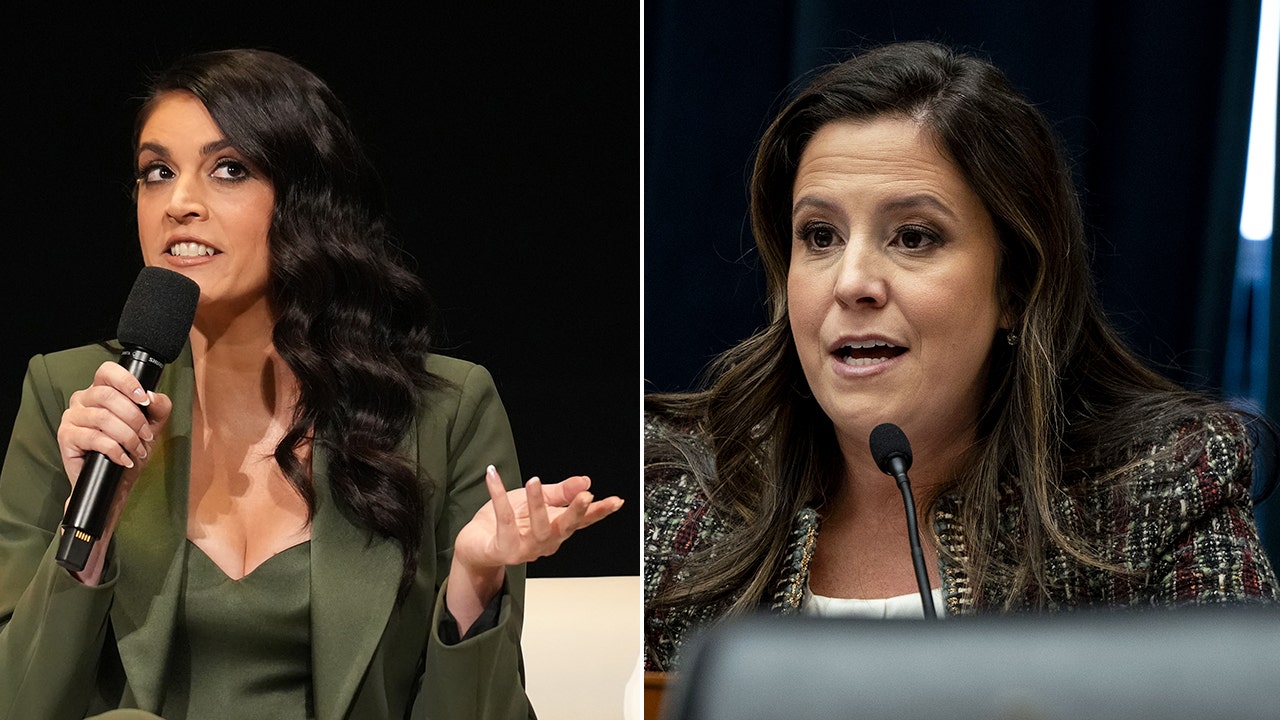A newly declassified memo released on Monday confirms that U.S. intelligence agencies rejected a key claim President Trump put forth to justify invoking a wartime statute to summarily deport Venezuelans to a prison in El Salvador.
The memo, dovetailing with intelligence findings first reported by The New York Times in March, states that spy agencies do not believe that the administration of Venezuela’s president, Nicolás Maduro, controls a criminal gang, Tren de Aragua. That determination contradicts what Mr. Trump asserted when he invoked the deportation law, the Alien Enemies Act.
“While Venezuela’s permissive environment enables TDA to operate, the Maduro regime probably does not have a policy of cooperating with TDA and is not directing TDA movement to and operations in the United States,” the memo said.
The memo’s release further undercuts the Trump administration’s rationale for using the Alien Enemies Act and calls into question its forceful criticism of the ensuing coverage. After The Times published its article, the Justice Department opened a criminal investigation and portrayed the reporting as misleading and harmful. The administration doubled down a month later after similar coverage in The Washington Post, citing the disclosures in both articles as a reason to relax limits on leak investigations.
The document, known as a “sense of the community” memo, was released by the Office of the Director of National Intelligence in response to a Freedom of Information Act request by the Freedom of the Press Foundation. The foundation provided a copy to The Times.
Lauren Harper, the Daniel Ellsberg chair on government secrecy for the foundation, said the memo was at odds with the administration’s portrayal of its contents as a dire threat to public safety.
The government “almost immediately declassified the same information in response to a FOIA request,” she said.
Ms. Harper continued: “The declassification proves that the material should have been public from the start — not used as an excuse to suppress sharing information with the press.”
But administration officials continued to defend Mr. Trump’s policy.
“It is outrageous that as President Trump and his administration work hard every day to make America safe by deporting these violent criminals, some in the media remain intent on twisting and manipulating intelligence assessments to undermine the president’s agenda to keep the American people safe,” Tulsi Gabbard, the director of national intelligence, said in a statement.
A Justice Department official said in a brief statement Tuesday morning that the gang had terrorized Americans. The White House did not respond to requests for comment.
Until Mr. Trump invoked it in mid-March, the Alien Enemies Act, an 18th-century law, had been used only three times in American history, all during declared wars. It says the government may summarily remove citizens of a country that is at war with the United States or otherwise engaged in an invasion of or predatory incursion into U.S. territory.
Immediately afterward, the administration sent planeloads of Venezuelans to a notorious high-security prison in El Salvador with no due process. Courts have since blocked further transfers under the proclamation. Citing evidence that some of the men sent there were likely not gang members, the American Civil Liberties Union has asked a judge to order the Trump administration to bring back the Venezuelans for normal immigration hearings.
On its face, the Alien Enemies Act appears to require a link to a foreign government. Mr. Trump declared that Tren de Aragua had committed crimes to destabilize the United States “at the direction, clandestine or otherwise, of the Maduro regime in Venezuela.”
But The Times reported days later that the intelligence community had circulated findings on Feb. 26 that reached the opposite conclusion. The shared assessment was that Venezuela’s government and the gang were adversaries, even though some corrupt Venezuelan officials had ties to some gang members. It also said the gang lacked centralized command-and-control and was too disorganized to carry out any instructions.
The Times also reported that only the F.B.I. partly dissented and thought there was some kind of link, but it was based on information the other agencies — like the C.I.A. and the N.S.A. — thought was not credible.
The Trump administration asked the National Intelligence Council, made up of senior analysts and national security policy experts who report to Ms. Gabbard, to take another look at the available evidence.
On April 7, it produced the memo released on Monday. The Washington Post reported on the memo, which remained classified, later that month, further angering the administration.
Now in public view, the memo said the intelligence community based its conclusion on a series of factors. Venezuelan security forces have arrested Tren de Aragua members and have “periodically engaged in armed confrontations with TDA, resulting in the killing of some TDA members,” the memo said, showing that the government treats the gang as a threat.
While there is evidence that some “mid- to low-level Venezuelan officials probably profit from TDA’s illicit activities,” the memo said, the gang’s decentralized makeup would make it “logistically challenging” for the organization as a whole to act at the behest of the government.
The memo also shed additional light on the F.B.I.’s partial dissent.
It said that while F.B.I. analysts agreed with the other agencies’ overall assessment, they also thought that “some Venezuelan government officials facilitate TDA members’ migration from Venezuela to the United States and use members as proxies in Chile, Colombia, Ecuador, Peru, and the United States to advance what they see as the Maduro regime’s goal of destabilizing governments and undermining public safety in these countries.”
The F.B.I. based its view on “people detained for involvement in criminal activity in the United States or for entering the country illegally.” But “most” of the intelligence community “judges that intelligence indicating that regime leaders are directing or enabling TDA migration to the United States is not credible,” the memo said.
In examining the available evidence, the National Intelligence Council evaluated whether detainees “could credibly have access to the information reported” and whether they had offered details that could be corroborated about support the Maduro government had purportedly provided the gang in exchange for following its directions.
While portions of this section were redacted, the memo signaled skepticism. The detainees’ legal troubles, it said, could “motivate them to make false allegations about their ties to the Venezuelan regime in an effort to deflect responsibility for their crimes and to lessen any punishment by providing exculpatory or otherwise ‘valuable’ information to U.S. prosecutors.”
In late March, the memo noted, Chilean officials told the International Criminal Court that they suspected that the murder of a Venezuelan man in Chile last year was carried out by “a cell or group linked to the Tren de Aragua that was politically motivated” and originated from an order by Venezuela’s government. The Maduro administration denied that accusation.
But the memo also said other parts of the intelligence community had not observed or collected evidence of communications or funding flows showing government officials providing directions to leaders of the gang, even though such a relationship would likely require “extensive” such interactions.
Judges so far have stayed away from second-guessing the truth of Mr. Trump’s factual claims in deploying the Alien Enemies Act.
The day after the initial Times article, Todd Blanche, a former defense lawyer for Mr. Trump who is now deputy attorney general, announced that the Justice Department had opened a criminal leak investigation.
In a statement, he criticized the article, saying the information in it was classified but also “inaccurate.” But the declassified memo supports The Times’s reporting.
In an interview on Megyn Kelly’s podcast last week, Ms. Gabbard said that the reporting on the intelligence community’s conclusions was “being investigated.” Leakers had “selectively and intentionally left out the most important thing,” she added, pointing to the F.B.I.’s belief that the Maduro government was supporting the gang’s activities in the United States.
But the articles in both The Times and The Post discussed the F.B.I.’s contrary view.
Last month, Attorney General Pam Bondi wrote in a memo that she would roll back protections for press freedoms in leak investigations, citing the Times and Post articles as damaging examples of leaks of classified information.
In an Espionage Act case, prosecutors must prove that someone knowingly made an unauthorized disclosure of defense-related information that could harm the United States or aid a foreign adversary. The government’s declassification of the memo raises questions about any case that could be brought over the Times and Post articles.















